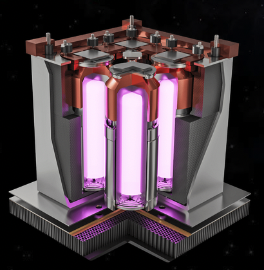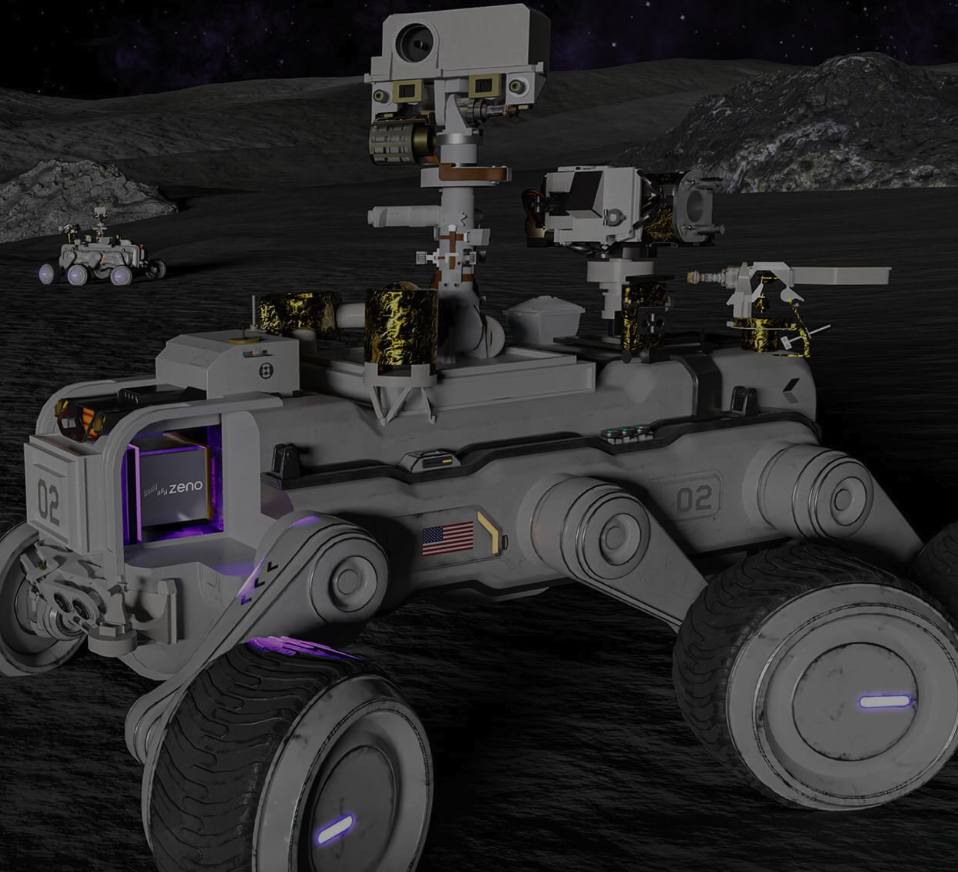Zeno Power, a startup initiated through the Wond’ry, Vanderbilt’s Innovation Center, has received a total of $30 million from the U.S. Department of Defense and private investors to develop and build a flight-ready radioisotope-powered satellite by 2025. It is expected to be the first launch of a commercially developed space nuclear system in history.

Led by alumni Tyler Bernstein, Jonathan Segal, BS’19, and Jake Matthews, MS’18, Zeno Power’s mission is to provide clean, plug-and-play power, anywhere in the universe. The $30 million, provided through a U.S. Air Force Strategic Funding Increase agreement, will be used to develop a radioisotope power system–enabled satellite for the U.S. Space Force.

Radioisotope power systems convert heat generated by the natural decay of radioactive isotopes—into electrical power. RPSs have been deployed in a variety of space missions because they can be used in environments beyond the capabilities of solar power, chemical batteries and fuel cells, according to NASA.
Zeno Power has created a novel and commercially available RPS that uses radioisotopes that are currently categorized as nuclear waste. With this technology and the abundance of these nuclear waste materials, Zeno is able to rapidly fulfill the needs of commercial and government customers in space and on Earth.

“This program will provide a satellite capable of persistent maneuverability, flexible orbital profiles and other capabilities that will enable the Space Force to conduct first-of-a-kind mission types and drive change to operational architectures with future missions and payloads. Programs such as this one provide a pathway to rapid iteration and cost-effective innovation to establish new capabilities,” Space Force Lt. Col. Thomas Nix said in Zeno Power’s announcement.
Founded in 2018 within the Wond’ry’s Founder Program, the startup received $20 million in Series A funding in 2022. “In the fall of 2017, we were really questioning the merit of our concept after initially receiving some negative feedback. That’s when the Wond’ry encouraged us to press forward and helped us apply for the NSF I-Corps Program to conduct real-world market research,” Segal said. “It was through that research, supported by I-Corps and the Wond’ry, that we discovered promising use cases for our technology—including powering space and undersea applications. Today, over five years later, we are thrilled to be on track to deliver the first commercially developed nuclear-powered satellite to the government by 2025.”
